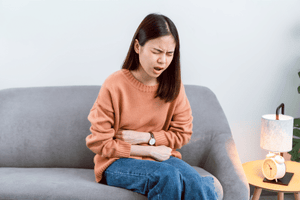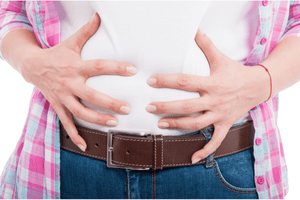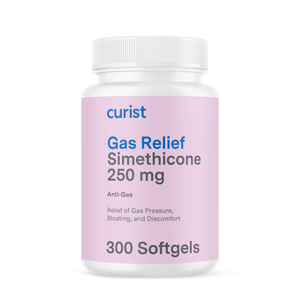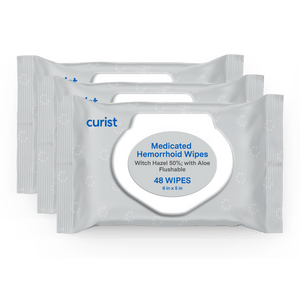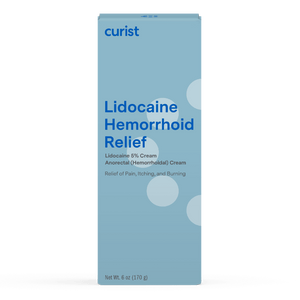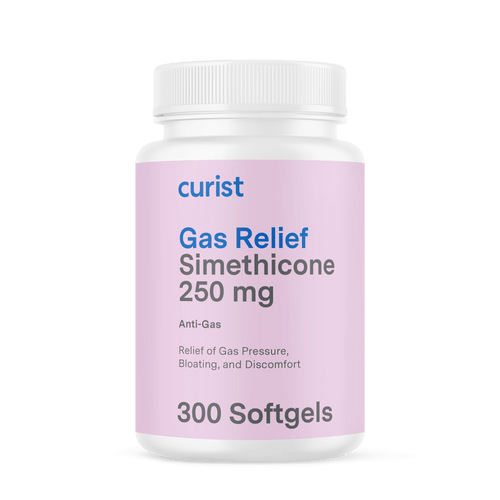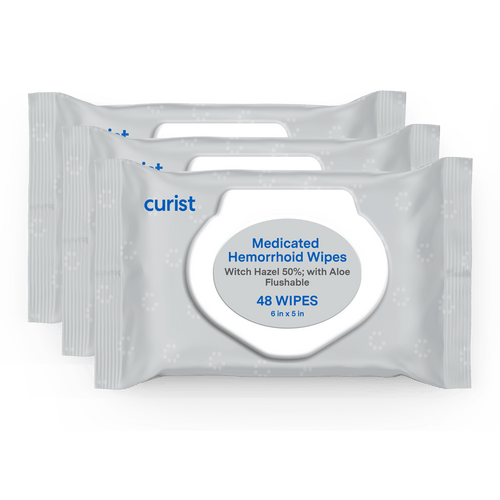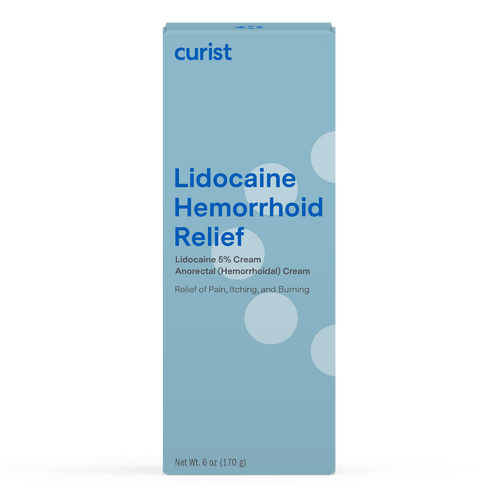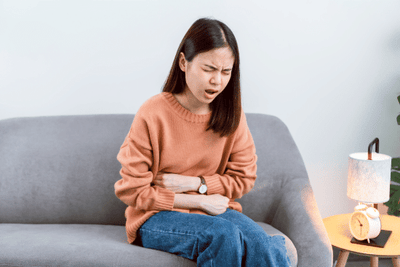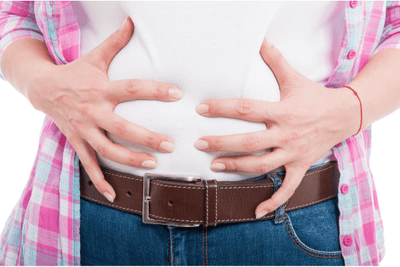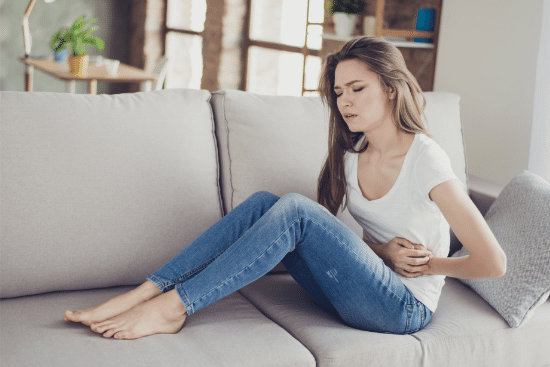
Curist delivers over-the-counter medicines to your door at a fraction of the price of traditional brands. We hope everyone stays safe and healthy during this time.
Constipation is a common complaint, so know that you are not alone. Constipation can be best managed with lifestyle changes and over-the counter (OTC) products as needed. Continue reading to learn helpful tips to relieve discomfort of constipation and help restore your normal bowel function!
What are Normal Bowel Movements?
Daily bowel movements differ from person to person. Having 1 to 3 bowel movements per day or 2 to 3 bowel movements per week can both be considered normal. A significant change from bowel movement patterns or extended periods without bowel movements may indicate a problem.
What is Constipation?
If you have difficulty passing stool or have gone more than 3 days without a bowel movement, you may be constipated. Other symptoms of constipation may include passing hard, dry, small stools and feeling like you can not fully empty your bowels.
What are the First Signs of Constipation?
The first signs of constipation can be feelings of discomfort and pain. You may feel tightness or pain in your abdomen. You may also feel bloated and gassy. However, unlike discomfort from excessive gas, passing gas does not relieve discomfort. You may experience difficulty passing stool, feeling of not fully emptying your bowels, or notice a lack of normal bowel movements.
What are the Symptoms of Constipation?
Constipation is not only defined by the number of bowel movements per day or week. Symptoms of constipation can include:
- Decreased frequency of bowel movements
- Abdominal discomfort
- Straining to pass stool
- Passing hard, dry, small stools
- Feeling as though you can not fully empty your bowels
Where is Constipation Pain Felt? Where is Pain from Constipation Located?
Constipation pain is often felt in the abdomen. Abdominal pain may be accompanied with or without feelings of bloatedness. Other symptoms related to abdominal pain may include
little or no appetite, abdominal cramps, or a stomach ache. Abdominal pain is commonly seen with constipation because of the need to have bowel movements.
What Can Cause Constipation?
The feelings of discomfort from constipation may be due to various reasons that are usually not of concern. Constipation can result from lifestyle factors like diet, physical activity, stress, medications, or other health conditions. Some common causes include:
- Not enough fiber in your diet
- Not drinking enough fluids
- Not exercising enough
- Medications or dietary supplements
Can Food Allergies Cause Constipation?
Food allergies and intolerances can cause or worsen constipation. Finding the cause of constipation can help determine which foods to avoid. Common foods that may cause or worsen constipation include:
- Alcohol: drinking large amounts of alcohol can lead to dehydration, which can worsen constipation
- Gluten-containing foods: a common symptom of gluten intolerance or celiac disease is constipation
- Processed grains: processed grains contain less fiber than their whole grain counterparts. Eating more processed grains over whole grains may lead to not having enough fiber in your diet, which can worsen constipation
- Milk and dairy products: lactose sensitive individuals may experience constipation when eating dairy or milk products. Typically, individuals with lactose intolerance are more likely to experience diarrhea after eating dairy than constipation
- Red meat: red meat is typically low in fiber and high in fat. Eating red meat over fiber rich foods may lead to not having enough fiber in your diet, which can worsen constipation
- Fried or fast foods: fried or fast foods are low in fiber, high fiber, and high salt. This may lead to lack of fiber and not being well hydrated which can lead to constipation
How Do I Prevent Constipation?
To help prevent constipation, first establish healthy lifestyle habits, such as dietary and exercise. The management of constipation involves the three “F’s”: increasing intake of high-fiber foods, increasing fluid intake, and initiating more fitness.
- Gradually increase daily fiber intake
- The American Dietetic Association recommends an adult daily dietary fiber intake of 25 grams for adult women and 38 grams for adult men. You can start with two servings per day of fiber rich foods (fruits, vegetables, whole grains, wheat bran) and increase gradually every 7-10 days. Sudden increase in fiber intake can cause pain, cramping, and overall discomfort.
- Drink non-caffeinated beverages Drinking 4 to 16 cups of water can prevent constipation as well as dehydration, mood change, and the body to overheat. Try to sip water throughout the day.
- Gradually increase aerobic exercise
- Regular fitness can include increased walking, jogging, or swimming to one’s day.
What are the Best Over-the-Counter Medications to Treat Constipation?
There are a plethora of over-the-counter products you can choose to relieve constipation.
However, you should use any one of the constipation treatments for short term treatment of 7 days or less.
- Psyllium (Metamucil®), methylcellulose (Citrucel®), or polycarbophil (FiberCon®) are recommended as the treatment of choice in most cases of constipation. They act as a laxative and fiber supplement and work within 12 to 24 hours.
- Polyethylene glycol 3350 (MiraLAX®) is often recommended by doctors to treat constipation. It is an osmotic laxative which works with the water in your body to soften and ease passing of stool.
- Magnesium citrate or magnesium hydroxide are osmotic laxatives. However, they may interact with some medications, so it is not preferred for constipation.
- Senna (Ex-Lax®) and Bisacodyl (Dulcolax®) work on nerves in your colon to help stool to move through. They work within 6 to 10 hours.
- Docusate Sodium (Colace®) can soften hard, painful stools to help constipation and work within 12 to 72 hours.
When Should I Seek Help for My Constipation?
Contact your health care provider if constipation continues over several weeks/months or is complicated by other pre-existing medical conditions. Consider reaching out to your provider if you feel marked:
- Constant abdominal pain
- Abdominal distension
- Fever
- Nausea or vomiting
- Blood in your stool
- Age 2 years or younger
